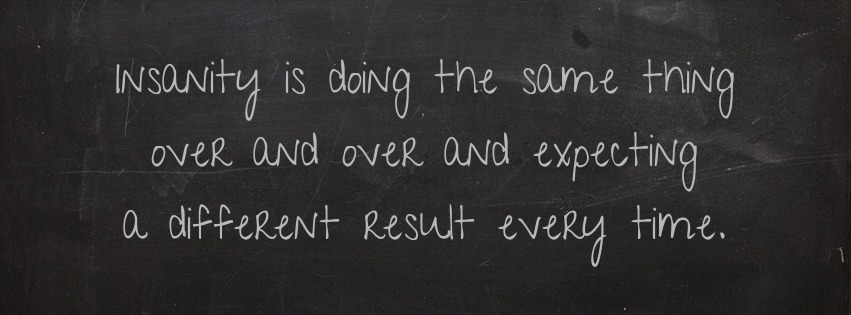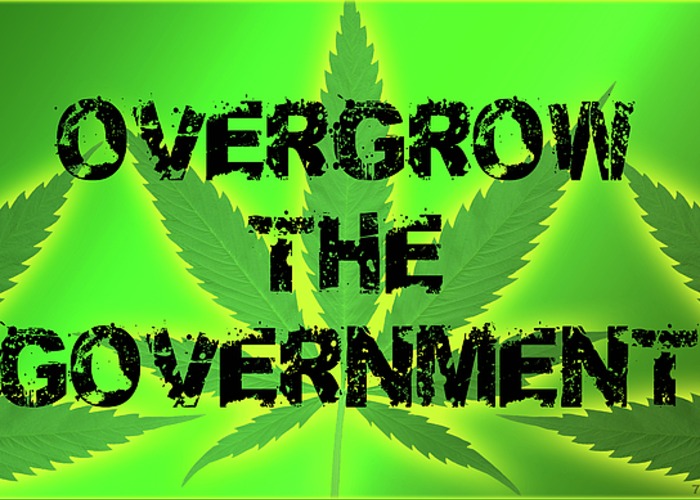
Today I want to make my rebuttal of a friends defense for Larkin Rose’s expressed position on God/ Deism.
Larken Rose Recognizes the fingerprint of Intelligence within the incredible design of living things yet appears ambivalent towards any further thought or discussion about the ramifications of this Revelation.
He reminds me of the late A Flew… the once High priest of Atheism who in the face of the discoveries of Modern science esp the complexity of living things abandoned his Atheism for belief in Intelligent design… yet never made the full traverse to Bible believing Faith in THE LORD.
Flew was an honest thinker yet ran out of Time…whereas Larken Rose still has time to discover the truth… yet his attitude appears to me to be that of a Man who does not really want to go down that road…and I question his motives.
I argue why Deism may once have been forgivable/ understandable in the distant past, yet is inexcusable today, and that now Reason and Logic are on the side of the Theist.
While both entail the belief in a Creator God, what distinguishes Deism from Theism is that Deism rejects Divine interventions in the affairs of Men… No Miracles to circumvent the laws of Nature… and esp No Divine special Revelations to mankind.
It will be necessary for me to skip over large portions of history and related material for the sake of brevity such as the Deism of the 18th century.
(I will have to do a separate Blog post on these important aspects of this topic at some later date, and insert a link to it here)
Watch Larken Rose Here…
*********
Ten or more years ago I was asked to debate Hamilton based Atheists for the existence of the Christian God.
One of my opponents was Garry Mallett from Act.
Now The only reason I have mentioned this debate is because the 2nd part of my argument was the logical assumption that *If there is in fact a God (in the Full context of the word) and that he made us human beings…as Rational, conscious beings… that it would be a reasonable assumption to think that surely he would communicate with us some how… who he is… why he made us…etc rather than just leaving us Ignorant about such things.
That was my premise for why it is rational to at least consider the possibility that the Bible’s claim to be the Divine Revelation from the Creator of the Universe to be a plausible possibility at least… and that the honest thinking person having first concluded that the Universe and Living things are best understood as the products of intelligent design… that following upon that, that The Bible answers the questions that naturally flow on…. The *Who* is this Great designer of the Universe… and what message does he have for us… his Conscious Rational Moral Free Agent Creations… and most importantly… that such a Revelation is precisely what the rational mind would expect from the God who is there… rather than silence.
This is an argument that places Theism as superior to mere Deism and in fact renders belief in Deism today to be a cop out…poor reasoning at best… mostly willful ignorance.
Deism and Theism both draw upon what has been described as ‘Natural religion’… Ideas about God derived from looking at Nature… looking at what has been described as ‘The Book of God’s works’.
Yet Theism makes an additional claim that we have a second Book that we may also gain direct and infallible knowledge about God.. The Book of his actual words.
Deism/ Natural Religion is great up to certain point, yet severely limited as it can never tell us Human beings *who God is*… only that he is there… and that he is super intelligent and super powerful, and that there is some sort of Objective moral law which We Human beings ought to at least try and live by… that gives our Moral sence some legitimate foundation and purpose… rather than simply being some sort of illusion… mere sentiment… mere feelings.
An Idea such as ‘Kharma’, or ‘Reaping what you sow’… These are the sorts of ideas human beings have arrived at via contemplating nature… ‘Do unto others as you would have done unto you’ … ‘Be Good’… we know that’Theft is evil’…because we hate it when someone steals from us… so dont steal from others… yet still none of this has anything higher than our own opinion to rest upon… or the opinion of ‘wise others’… and is therefore not impervious to arguments of evil men that assert that all such moralizations are vacuous.
Dark minds may posit the question… Maybe the Deity is Malevolent?
Do not Floods and Earthquakes signal that our creator is far from a caring God! ????
Is the only Moral Rule …contrary to what the wowzers would have us believe…that the Strong may subject the weak?
Are they trying to subject the strong to whiles of the weak?
What the heck is really going on?
Deism cant definitively answer this… yet it gives those whom cling to it a certain self-justification for not being Nihilistic… for claiming they are Moral and good. (something that is necessary because of what the bible describes as our innate knowledge/ consciousness of Good and evil)
“For the invisible things of him from the creation of the world are clearly seen, being understood by the things that are made, even his eternal power and Godhead; so that they are without excuse:…”
St Paul. Romans 1:20.
Yet Deism says *Nobody can claim to really know*.
Now I love many of the Great heathen thinkers of classical times, whom both believed a God exists, and that Humanity should be moral, and because of the times and places in which *they lived* I accept that they really had taken ‘Natural religion’ to its highest forms and that they had no ‘Rungs upon which they could possibly ascend higher and closer to God’, and that they were Good, wise, Moral men…In the context of how good any man might be under such circumstances. (Separated/ aliens from Israel, mostly living before the advent of Christ)
It is at this plateau that many of the Great Heathen moral thinkers had arrived.
The Stoic Marcus Aurelius is supposed to have said…

Though Aurelius lived post-Christ and had ‘herd’ about the Christians and held negative opinions about them, I am not sure to what degree he had any real first hand communications with them, or any familiarity with the Old testament/ Book of Genesis, thus I tend to consider his situation as very similar to that of the *Pre-Christ* Gentile thinkers… Aliens from the Divine revelation.
He was a very interesting thinker…God will judge him.
Here is an interesting link to this Topic
Now As a Christian Theist who believes the Bible, I know there are Mountains of the most vital truths missing from this Natural/Deistic Faith position because I have the Divine Revelation… The Holy inspired and preserved words of God Almighty himself esp the Facts That Humanity is under a curse because of our Sin, and that our Sin separates us from God and puts us in danger of His Judgement and Damnation.
*It is possible*… because it is so obvious… without the aid of scripture to apprehend by the power of reason alone Humanities fallen/ sinful condition… our wickedness… our depravity… our Cruelty…. and perhaps from this a rationale may be conceived of the need to somehow appease the anger of the God(s)… for justice sake… all sorts of weird Ideas have been proposed… *Yet via reason it would be impossible to conceive of the doctrine of Christs virgin birth, and substitutional atonement for our sins, and resurrection*…from nature alone.
Indeed many Naturally minded people find these Doctrines repugnant… which leads to my main contentions for this blog about Deists living today in western civilization… and their willful ignorance/ rejection of the Divine Revelation… the Bible in which all these doctrines are laid out in the most Logical fashion from the very beginning in Genesis.

As I have said Deism is severely handicapped to what degree it can reveal the nature of God to us… limited in its certainty of moral precepts, etc, none the less *Today*…far from these limits as being considered by trendy thinkers as pitfalls… these people actually *enjoy* them!
Most of these are people *Today* … follow a trend that became fashionable from the end of the Great reformation who… for various reasons…good or bad… *hate organised religion* (which tends to be where Theistic claims of having ‘Divine revelation’ are most prevalent) … they also enjoy what they see as ‘the Freedom to do as they please… the only moral restraints being their own conscience… and esp that Deism can make no emphatic claims of Divine Judgement for moral failures… it cant even emphatically state the validity of any Human Judgement derived from Nature.
They will say that ‘Reason’ is the only Authority they will subject themselves to, and as they have reached to limits of Reason… they cannot be subject to any higher Moral authority or law.
Philosophers love to quote Hume … “you cant get an ‘Ought from an Is”.
Its Funny though that ordinary people seem to be able to do just that without much trouble appealing to sentiment… they are not moved by arguments that say we can have no confidence in these… in fact to my thinking …the rational approach to this mystery of consciousness to the ideas of Good and evil is not to say ‘We cant ever know’… but instead to set out *in faith* on a Pilgrimage to discover some means by which our sentiments can find Objective validation… It is a quest of discovery for the Divine revelation from the Intelligent Creator whose existence is testified to by his Natural handiwork.
And It is an Irony that in a work by the great skeptic himself David Hume called ‘Dialogues concerning Natural religion’ in which there is a debate about the existence of God, in which Hume deploys his skeptical arguments in the person of ‘Philo’, yet stunningly… in the final analysis his Book ends by giving the victory to the Theist ‘Cleanthes’!
My contention at the Debate was that not only did the Deity Communicate his existence and expectations of Humanity via Prophets and the written word… He intervened into Human affairs in the Most personal manor…. He visited us… and Walked among us… God was manifest in the flesh.

“Then he said unto them, O fools, and slow of heart to believe all that the prophets have spoken:…”
Now when you add up all the components I have briefly discussed above you ought to be able to grasp why it is that I myself am a Theist… a Bible believer… That the fact that we westerners have easy access to the King James Bible and the book of Genesis therein, that willfully seeking to remain ignorant of the Divine revelation is inexcusable… and why it is that I have a pet dislike for modern Deism… esp its corruption/heresy of what I call Christian Deism which I see as a pathetic retreat from true Christian Theistic faith…caused by a weakness in faith and Bad reasoning… in the face of Atheist sophistry. (Topic for another Post)
I actually struggle to contain my contempt!
I need to take 5… and chill… and remember that it is only by Gods grace that I myself am a Christian at all.
I need to remember *How alien* I once was… How utterly incapable of apprehending the existence of God let alone the truthfulness of the Bible!
It is with all this in mind that I decided to keep calm and write this post..
Recently A friend of mine tried to justify the Deism of one of his Favorite thinkers Larkin Rose, which I had critisised as being pathetic… because he refused to make the most basic inference that Intelligent design demands *GOD* and that from this obvious conclusion… if he was an honest thinker… would demand he then begin a personal pilgrimage to discover *Who* this Grand designer is.
My friend began to repair to the arguments *of Classical Deism* and the limits that Logic faced in that direction… as if that excuse… which of course appears quite valid when looking back to heathen lands… and times before Christ… aliens to the Divine Revelation, Yet This blogpost is my express rebuttal to that argument when applied to modern thinkers like Larkin.
It is invalid for Thinkers today to simply rest on that ancient Plateau… because they live post Christ and have access to the Bible and history.
This makes them fully culpable for rejecting Jesus Christ.
Socrates on the other hand was not privy to the Bible… and I even conjecture that he would have become a Christian had he been given the opportunity… so many of his conclusions about Divine things being in perfect harmony with the scriptures… that he never had opportunity to read.
I say that If Socrates would have considered the Gargantuan explanatory power for the first chapters in the book of Genesis…plus all the rest… the Biblical explanation for the existence of Evil…The explanation of why God has separated himself from mankind… why we die… why there are Natural disasters, etc etc that it is very possible that he would have realised that this divine revelation gives a great logical basis for Biblical theistic faith when one applies it to the world about him.
That in fact the Bible *Is the Revelation* of the Intelligent designer of everything…his message to us his creatures… esp telling us *Who he is*… and what is *Really* going on.

So I question why it is that though Larken Rose sees through the delusion of atheistic evolution, he still is apathetic towards discovering *Who God is* and challenge him to Read the King James Bible… to really contemplate it’s message… and that in doing so he would no longer be in a position to argue that Logic ends at the plateau of Natural religion.
The Bible is a logical extension from the Plateau at the top of the Mountain… upwards out of the stratosphere all the way… a direct line of communication to the Deity… a logical vindication of Bible believing christian Theism.
Of course Satan and his minions have been attacking the Bible, and via sophistry undermining faith in its veracity as The Bible is the Ultimate Fortress of God for the believer. It is the Ultimate Lighthouse in the storm of life Shining its beams upon the treacherous Rocks of peril, and a Guide of Safe passage… salvation to every soul who sees its light and navigates into the Harbour of God’s love and Grace.
Satan is the enemy Of God and Men’s souls…The Father of Lies… it was by cunning craftiness that he was able to deceive Eve, and get her to disbelieve Gods word and to Eat of the forbidden fruit, and he has been at this game the whole time… Deceiving… yet the word of God remains like a Rock
Happy Resurrection Day!
Tim Wikiriwhi.
Protestant, 1611 King James Bible believer, Dispensationalist, Christian Libertarian.
The last paragraphs of Humes Dialouges concerning Natural religion…
If the whole of Natural Theology, as some people seem to maintain, resolves itself into one simple, though somewhat ambiguous, at least undefined proposition, That the cause or causes of order in the universe probably bear some remote analogy to human intelligence: If this proposition be not capable of extension, variation, or more particular explication: If it affords no inference that affects human life, or can be the source of any action or forbearance: And if the analogy, imperfect as it is, can be carried no farther than to the human intelligence; and cannot be transferred, with any appearance of probability, to the other qualities of the mind: If this really be the case, what can the most inquisitive, contemplative, and religious man do more than give a plain, philosophical assent to the proposition, as often as it occurs; and believe that the arguments, on which it is established, exceed the objections, which lie against it? Some astonishment indeed will naturally arise from the greatness of the object: Some melancholy from its obscurity: Some contempt of human reason, that it can give no solution more satisfactory with regard to so extraordinary and magnificent a question. But believe me, Cleanthes, the most natural sentiment, which a well-disposed mind will feel on this occasion, is a longing desire and expectation, that heaven would be pleased to dissipate, at least alleviate this profound ignorance, by affording some more particular revelation to mankind, and making discoveries of the nature, attributes, and operations of the divine object of our faith. A person, seasoned with a just sense of the imperfections of natural reason, will fly to revealed truth with the greatest avidity: While the haughty Dogmatist, persuaded, that he can erect a complete system of Theology by the mere help of philosophy,
KS 228
disdains any farther aid, and rejects this adventitious instructor. To be a philosophical Sceptic is, in a man of letters, the first and most essential step towards being a sound, believing Christian; a proposition, which I would willingly recommend to the attention of Pamphilus: And I hope Cleanthes will forgive me for interposing so far in the education and instruction of his pupil.
D 12.34
Cleanthes and Philo pursued not this conversation much farther; and as nothing ever made greater impression on me, than all the reasonings of that day; so, I confess, that, upon a serious review of the whole, I cannot but think, that Philo’s principles are more probable than Demea’s; but that those of Cleanthes approach still nearer to the truth.
Read the whole Dialogue here (It is fabulous! 🙂 )
More from Tim…. The Rock of Divine Revelation.
Death of an Atheist. Follow the evidence.
Rapturous Amazement! The Advance of Science Converts The High Priest of Atheism to Deism. A Flew.
How can a Good God exist when there is so much evil in the world? (part1) Atheist Nihilism.
Christ’s work of Salvation on the Cross… The Great Equaliser.



















